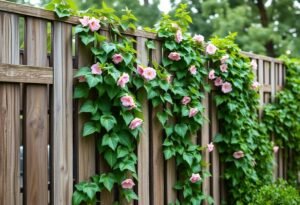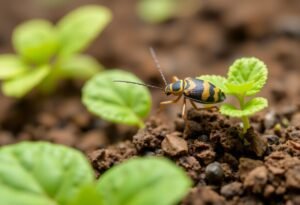What Are Aphids and Why Are They Dangerous?
Aphids are small, soft-bodied insects that feed on plant sap. Their presence in the garden can lead to severe plant damage and reduced yields. Knowing when to spray for aphids can be a vital step in battling these pests. Aphids can also transmit plant viruses, posing an additional threat to your green friends’ health. Regular monitoring and early detection of aphid presence allows for quicker action, saving many plants.
The Best Time to Spray
Choosing the right timing for spraying for aphids is imperative. The best time to apply sprays is in the early spring when aphids start to reproduce. Optimal conditions occur when temperatures begin to rise but do not exceed 75°F. At this time, these insects are most active and susceptible to chemical treatments. Additionally, it’s wise to avoid sprays during extremely hot days to prevent plant stress.
What Products Should You Use?
Choosing the appropriate products for aphids is critical. There are many chemical and ecological treatment options available. Often, spraying for aphids using biological solutions, such as neem oil or insecticidal soap, yields effective results. These are generally safer for the environment while still being effective. When choosing a product, it’s advisable to consult with a professional who can guide you in selecting the best method.
How to Apply Sprays?
When s spraying for aphids, we must keep a few rules in mind. Firstly, always follow the manufacturer’s instructions when using products. It’s best to spray plants during the early morning or late evening hours to minimize the risk of sunburn. Our efforts should culminate in thoroughly covering all parts of the plant—leaves, stems, and even roots—to target hidden aphids effectively.
How Often Should Treatments Be Repeated?
Depending on the severity of the aphid infestation, spraying for aphids should be repeated every few days to weeks. It’s crucial to observe whether the treatments are effective. In cases of severe attack, additional protection measures such as traps for aphids or plants attractive to natural predators can also help.
Nature’s Support
While we consider spraying for aphids, let’s not forget our garden allies. Predatory insects like ladybugs can help regulate aphid populations naturally. Creating a friendly environment for these insects is an excellent way to support the ecosystem in your garden and reduce the necessity for chemical sprays.
Conclusion
Choosing the right time for spraying for aphids and selecting the appropriate products is essential in battling these pests. Caring for the health of our plants is not just a requirement but also a passion that brings much joy. We encourage all gardening enthusiasts to employ effective methods to combat aphids while being mindful of the ecosystem in their gardens. The better we care for our plants, the more beautiful our gardens will be!
Disclaimer
This article is for informational purposes only and does not replace professional advice. Before using any products, we recommend consulting with an expert.

















